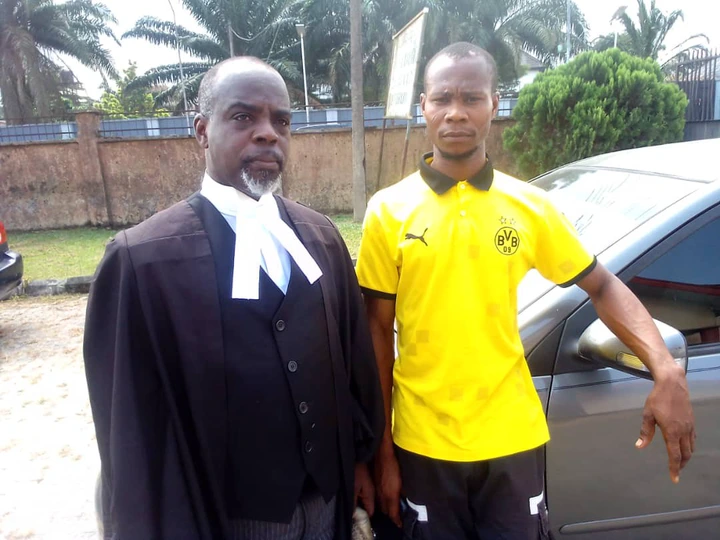Alleged N110bn fraud: Ex-Kogi gov Yahaya granted N500m bail
A N500 million bail has been granted to the former Kogi state governor Yahaya Bello by the Federal High sitting in Abuja after pleading not guilty to the alleged N110bn fraud levelled against him by the Economic Financial Crimes Commission (EFCC).
Justice Emeka Nwite on Friday granted Yahaya Bello bail after listening to the arguments of lawyers in the matter while also ordering that the defendant produce two sureties in like sum who must have landed property within the jurisdiction of the court.
The judge also directed that the sureties must swear to an affidavit of means and deposit the title deeds of priority to be verified by the court registrar, adding that Bello must also submit his international passport while he remains at the Nigerian Correctional Centre in Kuje, pending the perfection of the bail conditions.
The Informant247 reports that Yahaya had on Tuesday, December 10, remanded in Kuje Correctional Centre by the Federal Capital Territory (FCT) High Court, pending hearing of his bail application in the N110bn money laundering case brought against Bello by the Economic and Financial Crimes Commission (EFCC).
Justice Maryann Anenih who had earlier refused to grant a bail application filed by the former governor, saying it was filed prematurely, also adjourned the hearing to January 29 and 30 and February 25 and 27, 2025, for hearing.
The judge, while delivering the ruling, said having been filed when the 1st defendant was neither in custody nor before the court, this instant application was incompetent.
“Consequently, the instant application having been filed prematurely is hereby refused,” she said.
The former governor is standing trial, along with two others, in an alleged N110bn money laundering charge brought against him by the Economic and Financial Crimes Commission.
READ ALSO: Just In: Yahaya Bello pleaded not guilty to alleged misappropriation of public fund
Recalling the arguments before the court on the bail application, the judge had said, “Before the court is a motion on notice, dated and filed on 22nd November. The 1st Defendant seeks an order of this honourable court admitting him to bail pending the hearing and determination of the charge.
“That he became aware of the instant charge through the public summons. That he is a two-term governor of Kogi State. That if released on bail, he would not interfere with the witnesses and not jump bail.”
She said the Defendant’s Counsel, JB Daudu, SAN, had told the court that he had submitted sufficient facts to grant the bail, urging the court to exercise its discretion judicially and judiciously to grant the bail.
In opposing, the Prosecution Counsel, Kemi Pinheiro, SAN, had argued that the instant application was grossly incompetent, having been filed before arraignment, saying it ought to be filed after arraignment, but the 1st Defendant’s Counsel disagreed, saying there was no authority
“that says that an application can only be filed when it is ripe for hearing.”
While delivering her ruling, Justice Maryann Anenih said, “The instant application for bail showed that it was filed on the 22nd of November. This shows that it was filed several days after the 1st defendant was taken into custody.”
Reading from the ACJA section, the judge said the provision provided that a bail application could be made when a defendant had been arrested, detained, arraigned or brought before the court.
Bello had filed an application for his bail on 22nd November but was taken into custody on 26th November and arraigned on 27th November.
The 2nd Defendant, Umar Oricha, was, however, granted N300 million bail, with two sureties, “who shall have property in the Maitama District of the FCT, within the jurisdiction of the court.
He shall not travel outside without the leave of the Court and shall remain in Kuje Correctional Centre, pending the fulfilment of the bail conditions.
The 3rd Defendant, Abdulsalami Hudu, was also granted N300 million bail with the same conditions as the 2nd Defendant.
The judge, however, said that each surety must enter into a bond for not more than one defendant, while the defendants were directed to deposit their international passports with the Court Registrar.







